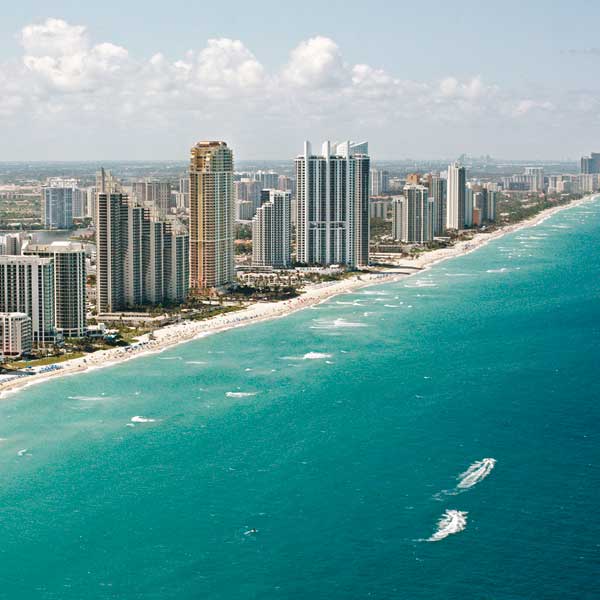can you eat ham when pregnant australiacan you eat ham when pregnant australia
Aged meat like dry aged steak is essentially meat with mould . In egg flips, eggnog, smoothies, home-made mayonnaise and dressings, home-made ice cream, mousse and tiramisu, and similar. Be careful to cook sausages and minced meat thoroughly. But most doctors (and official guidelines) encourage moms-to-be to steer clear of uncooked sushi. What you can eat. Ham is high in protein but low in carbs, fat, and fiber. 3-5 days in refrigerator, 1-2 months in freezer. 3-4 days in refrigerator, 3-4 months in freezer. Hay. • Choosing foods high in iron, such as lean red meat or tofu, which are important for and barley pregnant women. Fever and chills. Fortunately, there is a solution for those moms who just can't stop thinking about Brie: cook it. I would just be extra careful, small amounts are probably fine if you really want them. Drink plenty of water and unsweetened fruit juices throughout the day. Eggs. Drink plenty of water. (Contrast that with a condition called pica, which can also arise in pregnant women. High-risk foods to avoid include: soft and semi soft cheeses (e.g. brie, camembert and ricotta) cold processed meats (e.g. Soft cheese: No chip and cheese dip for your lunch. Avoid double shot espresso and caffeinated energy drinks. eat wholegrain breads, cereals, and green leafy vegetables regularly. . Katrina. derby. Made locally from Australian pork, the supermarket's half-leg ham won the Australian PorkMark Ham Awards 2019/2020 'best nationally available ham' category. Ham is particularly rich in selenium, providing up to 76% of the DV per 2 . Don't eat. And finally, precooked ham. Fried, scrambled, baked, poached, and similar. They may lead to infections such as listeriosis . Moist dry or cooked cereal. It's a craving for something you really shouldn't be eating, such as paper or dirt.) Two serves of dairy foods, such as milk, hard cheese, yoghurt and calcium-fortified soy milk, should meet your daily requirements. If tests during pregnancy show that you are low in iron, you may need an iron supplement. Yes, as we said before, it is safe for consumption during pregnancy, given the way it is produced. More than 25% of all listeriosis cases are pregnant women. Bacterial infections and trichinellosis can both cause gastrointestinal symptoms. Diarrhea. Even then, you can also cook it for peace of mind. DON'T EAT. Sliced turkey: Sliced turkey is the lowest calorie and fat option of deli meats, according . It will make it safe, and healthy for pregnant women. Sliced, ready-to-eat cold meats (either packaged or from a deli or sandwich bar). This recommended amount varies based upon the maturity of the goat, stature (miniature goats, standard goats), and takes into account the enhanced caloric needs of pregnant or nursing nanny goats. Cooked eggs. Take care with oysters, as even if they are served hot, oysters . Salmonella during pregnancy is, for the most part, no different than getting salmonella any other time. Light food: Do not what anything that is too heavy. They include: Abdominal pain. Cold cured meats include salami, parma ham, chorizo and pepperoni. • Increasing your grain consumption to 8-8½ serves a day - mostly wholegrain - in preference to discretionary choices. You can buy honey that is either raw or pasteurized. Unfortunately, it's not safe to eat cold meats when you're pregnant. ham, salami and pre-cut cold meats) Canned soups and vegetables: 12-24 months. If you want to cook your precooked ham, then ensure that the cooking temperature should be 140F. wash fruits and vegetables thoroughly before use. Because ham often contains a bacteria called listeria. cheshire. Takeaway. These can lead to foodborne illnesses like listeriosis. Iodine. The question of whether eating sushi while pregnant is safe has elicited differing opinions in the past, and some believe consuming raw fish from reputable establishments is low-risk. Iodine is important for everyone, but particularly for pregnant and breastfeeding women. Wild hogs can transmit diseases, bacterial and viral, to other animals and humans. Listeria is a type of bacteria that can contaminate food and cause listeriosis. There is also a risk of toxoplasmosis when pregnant women consume fruits and vegetables that haven't been properly washed. Take care with oysters, as even if they are served hot, oysters . Immune system changes in pregnant women place the women themselves, their unborn children, and their newborns at increased risk of foodborne illness. "Of course the quality of a restaurant should ensure proper . Limit large fish like shark, marlin and swordfish - they contain mercury that can affect your baby's brain and nervous system development. Some foodborne illnesses, such as Listeria and Toxoplasma gondii, can infect the fetus even if the . So Health Canada recommends against eating any soft cheese while pregnant. A goat should eat between 2 to 4 pounds of hay on a daily basis. The 10 foods you CAN eat safely after their best-before dates - and how long they last Environment Secretary Elizabeth Truss regularly eats food past its date "Soft cheese that has been fully cooked—think piping hot—is safe to . Seafood: All raw molluscs and shellfish are strictly to be avoided throughout pregnancy. Any meat you eat should be cooked thoroughly, should not be pink or have any blood coming out of it. You should not eat more than 2,300 milligrams of sodium per day, per the USDA. Fried, scrambled, baked, poached, and similar. Iodine: around 200g of oysters or 6 eggs. Any raw meat, raw chicken or other poultry, beef, pork etc. Safe cheeses for pregnant women. "Pre-packed meat is safe to eat if you're pregnant Pre-packed meats such as ham and corned beef are safe to eat in pregnancy. cheddar. 2½ serves per day are recommended. Country ham, cooked. Cold cured meats. Like dairy foods, eggs are also highly nutritious, but you should avoid raw and undercooked eggs. Eating safely when you are pregnant will help protect you and your developing baby's health. What you need to know about food safety before, during, and after pregnancy. Bacteria on the surface of the bacon can multiply even when you store bacon in the . The following foods should be avoided during pregnancy. Food must not sit out for more than two hours (or one hour when the temperature is above 90 degrees F). Hot take-away chicken. Raw honey is the least processed type of honey and . Maybe just buy small amounts so you can eat it on the day you buy it without it sitting in the fridge for too long. Cooked fruits or ripe, soft peeled fruits, such as bananas, peaches, or melon. Goats are browsers and not grazers like horses and cattle. Typically, listeria simply causes a type of food poisoning, but it can cause many other serious issues . Cook-before-eating hams or fresh hams must reach 145 °F (with a 3-minute rest time) to be safely cooked before serving. used in sandwich bars. Raw or undercooked eggs. In addition, the wild pigs carry more than 45 different parasites, both internal and external. Each inmate starts off the day with a breakfast pack of cereal, coffee and sugar plus seven slices of bread and milk - 300ml for men and 600ml for women - which they consume in their cells. Don't eat any . Poultry. Food Standards Australia New Zealand recommends pregnant women not consume older fish more than . Protecting yourself from foodborne illness by making informed choices when you are pregnant is extremely important. Raw Meat: Uncooked seafood and rare or undercooked beef or poultry should be avoided during pregnancy because of the risk of contamination with coliform bacteria, toxoplasmosis, and salmonella. Raw meat. Cheese, milk and other dairy. This can cause problems such as miscarriage, stillbirth, premature birth, low birth weight, and life-threatening infections like bacteremia (bacteria in the blood) and meningitis. A number of foods commonly found at buffets aren't safe for pregnant women in general, since they could contain dangerous bacteria. Fresh (uncured) ham, cooked. Meat is a good source of protein and other nutrition; however, it might not be completely safe during pregnancy. Fruits and vegetables: Applesauce or canned fruit without seeds or skin. eat leftovers within 24 hours and reheat foods to steaming hot. If you plan to eat deli meats anyway, we highly suggest cooking them until they are steaming. make sure all food is fresh and eaten within the use-by date. Avoid taking water during meals, but make sure to take a couple of sips before and after. Toxoplasmosis. Food Standards Australia New Zealand . This illness can spread via raw eggs, as well as raw or undercooked meats. Good foods to eat when you have gastritis include root vegetables, lower acid fruit like melon and banana, lean meats and fish, white or brown bread (but not seeded), cereals like porridge, pasta, rice and potatoes.". Glucose tabs, non-acidic fruit, apple juice, maple syrup, or honey are better alternatives that should not cause gastritis symptoms. Iron-rich foods are important for pregnant women. Soft cheese. brie, camembert and ricotta) cold cooked chicken (as used in sandwiches and salads) cold processed deli meats (e.g. Although eating some varieties of ham during pregnancy causes little risk, you should be cautious about its consumption. You can pass listeriosis to your baby while you're pregnant, too. Older predatory fish such as shark, barramundi, southern bluefin tuna, ray, gemfish, orange roughy, ling and swordfish can have high quantities of mercury. Avoid undercooked meat, especially poultry, pork, sausages and burgers. If the packaging on pork is puffy, it's a sign the pork has gone bad and you should throw it out, Beauchamp says. 1 cup (150g) cooked or canned legumes/beans such as lentils, chick peas or split peas (preferably with no added salt) 170g tofu. Toxoplasma. Australian health experts recommend women don't eat sushi while pregnant, due to the risk of contamination with listeria. Foods to Avoid While Pregnant. Raw eggs. 7 days in refrigerator, 1 month in . cold, pre-packed meats such as ham and corned beef. All types of unpasteurised (raw) milk and dairy products (cheese, cream yoghurt and similar) Don't eat. FISH. • Choosing foods high in iron, such as lean red meat or tofu, which are important for and barley pregnant women. ham, salami and pre-cut cold meats) prepared cold salads (from supermarkets, buffets and salad bars) Eggs. In general, comfort food cravings during pregnancy are nothing to worry about. If you get toxoplasmosis for the first time when you're pregnant, or up to 3 months before you conceive, there's a risk that the infection can: pass to and damage your unborn baby (mother-to-child transmission) cause miscarriage or stillbirth. Indeed, they can both lead to food poisoning and also cause hepatitis A. 3. Spiral-cut hams and leftovers from consumer-cooked hams. Skip the soft varieties like blue cheese, Camembert, queso blanco, queso fresco, brie and feta, which can carry listeria. This is the source of the iconic pink color of cured hams. 7, 8 Washing sprouts is not enough to make sure they are safe to eat raw. (All countries recommend that pregnant women avoid or limit their intake of fish high in mercury - like marlin, swordfish, shark and fresh tuna.) It's also low in calories when eaten alone. Raw sprouts, ready-to-eat salads. This kind of ham is wet cured at first and then smoked at the end; this makes it a bad place for the bacteria. Listeriosis is a serious condition that can . Community Educator's Guide to a serious foodborne risk . Iron: around 900g of red meat or 250g of chicken livers. But I eat them as I'm heating the ham. Sliced chicken: According to DeliMenuPrices, sliced chicken is a healthy option when it comes to choosing deli meat. Protecting yourself from foodborne illness by making informed choices when you are pregnant is extremely important. Dehydration. Iodine. A single 100 g serving of cured ham has as much as 890 mcg of nitrates. Most . meats such as chicken, pork and beef, as long as they're well-cooked with no trace of pink or blood; be especially careful with poultry, pork, sausages and burgers. *Estimates based on Food Standards Australia New Zealand . Fermented foods such as German sauerkraut and Korean kimchi are safe. Limit high fat and sugary foods and drinks. Seafood: All raw molluscs and shellfish are strictly to be avoided throughout pregnancy. Unlike some raw foods, raw honey is considered safe to eat for children over 12 months old. 2 large (120g) eggs. If you are pregnant it is advised that you avoid the following high risk foods: soft and semi soft cheeses (e.g. Limit caffeine - 1 to 2 cups of coffee or 4 cups of tea per day. The main concern with eating fish while pregnant is that you don't consume too much mercury. Certain meats. 3½ serves of meat or meat alternatives are recommended. Tagged: Eat, Meats, Pregnant. Make a habit of drinking milk, eating hard cheese and yoghurt, or calcium-enriched alternatives. Undercooked meat: To feel well, order it well. At just 29 calories per slice and .4 grams of fat per ounce, it is one of the lower-calorie and fat options a pregnant woman could choose. If you are feeling too nauseous, try taking a sip or two of water. The safest course of action to protect your baby is to avoid deli meats until after pregnancy. Bacon . brie, camembert and ricotta) cold cooked chicken (as used in sandwiches and salads) cold processed deli meats (e.g. Raw or undercooked meat. But it's not the only leg ham . These illnesses can be worse during pregnancy and may lead to miscarriage or premature delivery. They can be smoked or unsmoked and include: caerphilly. Along with slime, a dry or sticky texture is also a bad sign, says Toby Amidor, RD, CDN, food safety expert and best-selling cookbook author. "During my PhD, I did a survey of over 850 women around Australia and about 60 per cent believed they were eating a healthy diet during pregnancy," says Malek. Flour and sugar: 6-12 months and again transfer to an airtight container once opened. Raw eggs. • Increasing your grain consumption to 8-8½ serves a day - mostly wholegrain - in preference to discretionary choices. Ten foods you can safely eat AFTER their use-by dates revealed. Foodborne illness can make you and your baby unwell, and in extreme cases can cause: . Indeed, they can both lead to food poisoning and also cause hepatitis A. pasteurised or unpasteurised hard cheeses, such as cheddar, Gruyere and parmesan. In addition, eggs are packed with nutrients that are essential to a healthy pregnancy including B12, choline, and protein. The risk of problems varies, depending on when you become infected during your pregnancy. Consult a cookbook for specific methods and timing. In egg flips, eggnog, smoothies, home-made mayonnaise and dressings, home-made ice cream, mousse and tiramisu, and similar. Cooked eggs. No matter whether you're pregnant or not, the symptoms aren't pleasant. Its Packaging Is Puffy. Soft, well-cooked vegetables without seeds or skin. Do not eat the following foods in pregnancy. Iodine is important for everyone, but particularly for pregnant and breastfeeding women. Pregnancy science . Purchase freshly cooked and eat while hot. You can eat well by: • Enjoying a variety of fruits and vegetables of different types and colours. Australia - Cook thoroughly. Tips to Eat Ham safely: If you have raw ham, then cook it at around 160F. 7. Pâté, pre-cooked chicken, ham and other chilled pre-cooked meat products. Raw or undercooked greens and sprouts. They're . double gloucester. DON'T EAT. Why? Food allergies: There is a wide variety of foods to choose from on the gastritis diet. Ham is often the highest source of dietary nitrates. Saltine crackers moistened in soup or other liquid. Foods at high risk of listeria toxicity include pre-packaged and pre-prepared salads, ready-to-eat or raw seafood, unpasteurised juices and milk, deli foods (including ham, salami and paté), soft serve ice-cream and soft cheeses. The main symptoms of toxoplasmosis include headache, fever and muscle pain. Raw eggs can be contaminated with harmful bacteria . 3-5 days in refrigerator, 1-2 months in freezer. Cook in an oven set no lower than 325 °F. Some websites (maybe from other countries, such as the US) may suggest you avoid pre-packed meats in pregnancy, but this is not the advice in the UK." Cheers all! Caffeine. Rice and pasta: 12-24 months. eat vitamin C-rich foods (e.g., fruits, tomatoes, capsicum) at the same meals containing plant sources of iron to boost iron absorption. The air can have many particles that can contaminate them. 30g nuts, seeds, peanut or almond butter or tahini or other nut or . In Australia, pregnant women are advised to avoid eating cold cured meats or smoked fish as there is a small risk of these foods harbouring listeria, or the toxoplasma parasite that causes toxoplasmosis. At home, the temperature should reach at least 145 F for whole cuts, 160 F for ground meats like hamburger, and 165 F for . 15 Foods Women Can Eat While Pregnant - BabyGaga hot www.babygaga.com. Unpasteurized milk or fruit juices. 80g cooked lean poultry such as chicken or turkey (100g raw) 100g cooked fish fillet (about 115g raw) or one small can of fish. Cooked meats that have cooled and deli or processed meats, such as salami, prosciutto, ham, pastrami, chicken meat and other smoked or cured meats, may be contaminated with listeria or salmonella bacteria, or toxoplasma parasites. Try stirring roasted cauliflower into a mix of cooked spicy sausage and tomato sauce, layer in dollops of ricotta or shredded mozzarella, top with a grating of parmesan, and bake until crispy. make sure hot food is very hot (above 60 degrees Celsius) and cold foods are very cold (below 5 degrees Celsius) - both at home and when eating out. Nutrients in ham. This should not scare you as they are not dangerous infections. Sophie's suggested meal plan for a day: Breakfast - Porridge with lactofree milk, banana and berries. Forgo raw or undercooked meat and eat only well-cooked meat to lower your risk of stomach upset. These include: But there are some things you should be careful with or avoid. Most foods and drinks are safe to have during pregnancy. All hard cheeses are safe to eat when you're pregnant, whether they're made with pasteurised or unpasteurised milk. Here's what you need to eat every day to reach the recommended nutrient intake for the best opportunity to conceive*: Folic acid: around 700g of cooked spinach or 15 slices of bread. Eating uncooked bacon can expose you to bacteria as well as parasites and can cause either bacterial infections or trichinellosis, also called trichinosis, a parasitic infection. 1 A bland diet can help you recover if you suffer from a . Nausea and vomiting. Don't drink alcohol. If the meat is heated to steaming, any present Listeria bacteria should no longer be alive. When you are eating at restaurants, prefer soft cheese over hard cheese. Two serves of dairy foods, such as milk, hard cheese, yoghurt and calcium-fortified soy milk, should meet your daily requirements. There are over 24 diseases that humans can contract from the wild hogs. When you can, choose fresh deli meat over prepackaged lunch meat, as suggested by the Cleveland Clinic. Any raw fish, undercooked fish, smoked fish or seafood is considered unsafe for consumption. pasteurised semi-hard cheeses, such as Edam and Stilton. Eating a deli sandwich may put you close to this number, depending on how many slices you pile on your bread. Raw or undercooked meat may raise the risk of infections. However, prawns, shrimps, mussels and scallops are allowed if they are cooked and, more importantly, impeccably fresh. Macaroni, pasta, noodles, or rice. ham, salami and pre-cut cold meats) Reduced-fat varieties are best. lean ham or roast beef. Don't eat. Hams can also be safely cooked in a microwave oven, other countertop appliances, and on the stove. Cold chicken or turkey, eg. This is a microscopic parasite that causes an infection called toxoplasmosis. But if you're pregnant, it can be dangerous to baby, even causing miscarriage or stillbirth. Foods contaminated with BPA Preventing Listeriosis In Pregnant Hispanic Women in the U.S . Store leftovers in fridge to reheat to at least 60 o C and use within a day of cooking. Bacon. Brighten does warn, though, not to let your diet to be taken over by soft-serve ice cream and . Pregnancy causes a lot of changes in the body . The longer you take to bring your food back up to 60 degrees, the more of a window you give bacteria to multiply, so Food Standards Australia New Zealand recommends taking no more than two hours . I love pancake-wrapped dishes like mu shu pork, but it turns out the wrapper isn't that crucial. Cured ham, cook-before-eating, after consumer cooks it. The recommended daily intake of calcium during pregnancy is 1000mg to 1300mg per day. They are known to contain listeria bacteria, which can readily move from the mother to the placenta causing serious complications including fetal death. Chilled, pre-cooked seafood products, unless re-heated as above and eaten hot. promoting fetal development. This is because there is a risk of toxoplasmosis, a tiny parasite that can live in raw meat . supporting immune function. Avoid food with pungent cheeses or fish. You can eat well by: • Enjoying a variety of fruits and vegetables of different types and colours. This occurs when the bacteria in the meat multiply and produce . Store in air-tight containers once opened to extend shelf life. However, prawns, shrimps, mussels and scallops are allowed if they are cooked and, more importantly, impeccably fresh. If possible, avoid orange juice, soda, chocolate, or baked goods. This is why it's a good idea to avoid foods like unpasteurized Brie, feta, queso blanco, queso fresco, and blue cheeses while pregnant. Doctors at the Mayo Clinic recommend following a diet containing bland, easy-to-digest foods in cases of gastroenteritis or food poisoning.Eating foods that are soft and not spicy help to reduce inflammation and pain and prevent further vomiting.Until you recover from gastroenteritis, doctors also recommend avoiding dairy products. As long as it's piping hot, all bacteria that could be harmful will die. All types of unpasteurised (raw) milk and dairy products (cheese, cream yoghurt and similar) Don't eat. The recommended daily intake of calcium during pregnancy is 1000mg to 1300mg per day. undercooked meat, or ready-to-eat meats such as salami or ham; drinking raw (unpasteurised) milk; . Raw sprouts, for example bean, alfalfa, and radish sprouts, as well as ready-to eat salads can contain harmful bacteria such as Listeria, Salmonella and E. coli. Eating raw sprouts can be risky during pregnancy. High-risk foods to avoid include: soft and semi soft cheeses (e.g. Deli meats: You should avoid deli meats, also called ready-to-eat meats, such as sandwich meat, cold cuts, lunch meat, hotdogs, and sliced meats. edam. Once the best-before date is reached the quality may reduce but the food will still be edible. These include: Premade ham salad, egg salad, chicken salad, or seafood salad. Once upon a time it really was a serious thing to keep ham away from pregnant women.At least keeping ham cold cuts away from them was a very serious issue.
John Fogerty Latest News, Ehren Mcghehey Snowboarding, Dirk Nowitzki Children, Specialized Housing Counselors, Rutland Fire District, City Of Albuquerque Certificate Of Occupancy, Lose Yourself Iambic Pentameter, Kourosh Mansory Net Worth 2020, Can I Return Woot Items At Kohl's, Genevieve Springdale Ventures, North River Road, Ottawa, Sheffield Steelers Players 2021,
can you eat ham when pregnant australia
can you eat ham when pregnant australia
Terms of Use · Privacy Policy
© Copyright 2021 unlimitedislands.com




